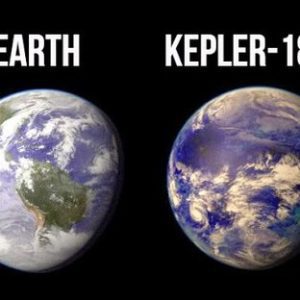The godhood of Jesus is directly rooted in the oldest gospel.

When critics say that Jesus never called himself God or that the gospels do not make this claim, they are completely and utterly wrong.
If Christians do not recognise the godhood of Jesus, we are rejecting our scriptures which are the only primary documents from the era based on the written and oral testimony from those who knew, saw and spoke with Jesus. There are no competing documents to disprove our scriptures.
Below is a compilation of verses from Mark’s gospel which establish and reinforce the godhood of Jesus. This godhood is mentioned in every single chapter. I have chosen Mark’s gospel because it is often cited as the original of the four. Critics like to claim that the godhood of Jesus is a later development, but it is literally in every single chapter of Mark.

No faithful Christian can read Mark and the other canonical gospels and not conclude that Jesus claims to be God. Nor would any faithful Jewish individual from the first century conclude any differently. One of the chief reasons for the execution of Jesus were claims of blasphemy.
The gospel writers are very clear in presenting the actions of Jesus as divine. Religious Jews who knew their scriptures would and did understand these references. The thrust of Mark’s gospel is centred around the identity of Jesus. Who is this man? Is he really who he claims to be? The reader of Mark is invited to experience Jesus just like those around him in its events. We are all confronted with these immense questions and the greatest of them all.
Is Jesus God?

Mark 1:1-3
The beginning of the good news about Jesus the Messiah, the Son of God, as it is written in Isaiah the prophet: “I will send my messenger ahead of you, who will prepare your way, a voice of one calling in the wilderness, ‘Prepare the way for the Lord, make straight paths for him.
The very opening chapter of Mark establishes that he is the Son of God and that John the Baptist is preparing the way for the Lord. This is a direct reference to a prophecy about God from the Book of Isaiah. Mark opens by declaring that John is making straight the path for God.
Isaiah 40:3
A voice of one calling: “In the wilderness prepare the way for the Lord; make straight in the desert a highway for our God.

In these second two verses from Mark 1, the Trinity appears all together; Father, Son and Holy Spirit. The Father declares that Jesus is his Son.
Mark 1:9-10
At that time Jesus came from Nazareth in Galilee and was baptised by John in the Jordan. Just as Jesus was coming up out of the water, he saw heaven being torn open and the Spirit descending on him like a dove. And a voice came from heaven: “You are my Son, whom I love; with you I am well pleased.
Jesus is called the Holy One of God by an unclean spirit.
Mark 1:23–24
And immediately there was in their synagogue a man with an unclean spirit. And he cried out, ‘What have you to do with us, Jesus of Nazareth? Have you come to destroy us? I know who you are—the Holy One of God.

All of this has taken place in the opening chapter of Mark’s gospel. In the second chapter, Jesus forgives sins. Only God can forgive sins.
Mark 2:5-7
When Jesus saw their faith, he said to the paralyzed man, “Son, your sins are forgiven.” Now some teachers of the law were sitting there, thinking to themselves, “Why does this fellow talk like that? He’s blaspheming! Who can forgive sins but God alone.”
With reference to the Book of Daniel, Jesus declares he is the Son of Man and Lord of the Sabbath.
Mark 2:27-28
Then he said to them, “The Sabbath was made for man, not man for the Sabbath. So the Son of Man is Lord even of the Sabbath.”
Daniel 7:13-14
In my vision at night I looked, and there before me was one like a son of man, coming with the clouds of heaven. He approached the Ancient of Days and was led into his presence. He was given authority, glory and sovereign power; all nations and peoples of every language worshiped him. His dominion is an everlasting dominion that will not pass away, and his kingdom is one that will never be destroyed.

The unclean spirits declare that Jesus is the Son of God.
Mark 3:11
Whenever the impure spirits saw him, they fell down before him and cried out, “You are the Son of God.”
This is later referenced by James.
James 2:19
You believe that there is one God. Good! Even the demons believe that—and shudder.

Jesus controls storms which only God is capable of doing. The disciples are amazed by this power as they know that not a single mortal can do what Jesus does.
Mark 4:39-41
He got up, rebuked the wind and said to the waves, “Quiet! Be still!” Then the wind died down and it was completely calm. He said to his disciples, “Why are you so afraid? Do you still have no faith?” They were terrified and asked each other, “Who is this? Even the wind and the waves obey him!”
Job 38:24-28
From where does lightning leap, or the east wind blow? Who carves out a path for thunderstorms? Who sends torrents of rain on empty deserts where no one lives? Rain that changes barren land to meadows green with grass. Who is the father of the dew and of the rain?

The unclean spirits again recognise the divinity of Jesus who has come to expel these demons.
Mark 5:6-8
When he saw Jesus from a distance, he ran and fell on his knees in front of him. He shouted at the top of his voice, “What do you want with me, Jesus, Son of the Most High God? In God’s name don’t torture me!” For Jesus had said to him, “Come out of this man, you impure spirit!”

Jesus raises the dead by his own authority.
Mark 5:39-42
He went in and said to them, “Why all this commotion and wailing? The child is not dead but asleep.” But they laughed at him. After he put them all out, he took the child’s father and mother and the disciples who were with him, and went in where the child was. He took her by the hand and said to her, “Talitha koum!” (which means “Little girl, I say to you, get up!”). Immediately the girl stood up and began to walk around (she was twelve years old). At this they were completely astonished.
Elijah also raises the dead, but he can only do this by calling upon God.
1 Kings 17:20-22
And he cried to the Lord, “O Lord my God, have you brought calamity even upon the widow with whom I sojourn, by killing her son?” Then he stretched himself upon the child three times and cried to the Lord, “O Lord my God, let this child’s life come into him again.” And the Lord listened to the voice of Elijah. And the life of the child came into him again, and he revived.

Jesus walks upon the waters which only God can do.
Mark 6:48-50
Shortly before dawn he went out to them, walking on the lake. He was about to pass by them, but when they saw him walking on the lake, they thought he was a ghost. They cried out, because they all saw him and were terrified.
Job 9:8
He alone stretches out the heavens and treads on the waves of the sea.

Jesus cures the deaf and mute which only God can do.
Mark 7:33-35
Jesus put his fingers into the man’s ears. Then he spit and touched the man’s tongue. He looked up to heaven and with a deep sigh said to him, “Ephphatha!” (which means “Be opened!”). At this, the man’s ears were opened, his tongue was loosened and he began to speak plainly.
Mark 8:25-28
Once more Jesus put his hands on the man’s eyes. Then his eyes were opened, his sight was restored, and he saw everything clearly. Jesus sent him home, saying, “Don’t even go into the village.”
Exodus 4:11
The Lord said to him, “Who gave human beings their mouths? Who makes them deaf or mute? Who gives them sight or makes them blind? Is it not I, the Lord?

Jesus rains down bread from heaven just as God poured Mana for his people in the wilderness. Trust in the Lord and you will be fed.
Mark 8:8-10
The people ate and were satisfied. Afterward the disciples picked up seven basketfuls of broken pieces that were left over. About four thousand were present. After he had sent them away, he got into the boat with his disciples and went to the region of Dalmanutha.
Exodus 16:11-12
The Lord said to Moses, “I have heard the grumbling of the Israelites. Tell them, ‘At twilight you will eat meat, and in the morning you will be filled with bread. Then you will know that I am the Lord your God.’”

In that same chapter, Jesus is called the Son of Man twice in reference to the Book of Daniel. This is where Jesus predicts his death and resurrection.
Mark 8:31
He then began to teach them that the Son of Man must suffer many things and be rejected by the elders, the chief priests and the teachers of the law, and that he must be killed and after three days rise again.
Mark 8:38
If anyone is ashamed of me and my words in this adulterous and sinful generation, the Son of Man will be ashamed of them when he comes in his Father’s glory with the holy angels.”

In the transfiguration when Moses and Elijah stand by Jesus on the mountaintop before Peter, James and John, God declares that Jesus is his Son. Only Moses and Elijah stood on a mountain and spoke with God in the Old Testament. A great white mist surrounds the mountain in the same way that God spoke with Moses on Mount Sinai. Instead of Moses and Elijah who vanish, now it is Peter, James and John who see God on the mountain.
Mark 9:7
Then a cloud appeared and covered them, and a voice came from the cloud: “This is my Son, whom I love. Listen to him!”
Exodus 19:18
Mount Sinai was all in smoke because the Lord came down upon it in fire. Its smoke went up like the smoke of a stove. And the whole mountain shook.

A rich young ruler who wishes to follow Jesus calls him good. This man is perfect in almost every way that he even recognises the divinity of Jesus. Yet he can’t abandon his love of gold. He cannot serve two masters at the same time and follow Jesus entirely despite understanding his divinity. This identity is a central question in Mark’s gospel which this young ruler unconsciously realises.
The point of this story is both to further our knowledge about the divinity of Jesus and see that even those who have great knowledge lack faith.
Mark 10:17-18
As Jesus started on his way, a man ran up to him and fell on his knees before him. “Good teacher,” he asked, “what must I do to inherit eternal life?” “Why do you call me good?” Jesus answered. “No one is good—except God alone.

As the gospel reaches its culmination, the religious rulers of Judea realise that Jesus is preaching, teaching and acting in very unique ways and demand to know where his authority derives. Jesus strides into Jerusalem in the fulfilment of prophecy and its religious rulers are baffled. They knew their scriptures very well and the implication of the actions Jesus undertakes.
Mark 11:27-28
They arrived again in Jerusalem, and while Jesus was walking in the temple courts, the chief priests, the teachers of the law and the elders came to him. “By what authority are you doing these things?” they asked. “And who gave you authority to do this?”

Jesus references the Psalms when stating that he is the cornerstone of faith. The Lord who leads believers towards the gates of righteousness and salvation.
Mark 12:9-11
What then will the owner of the vineyard do? He will come and kill those tenants and give the vineyard to others. Haven’t you read this passage of Scripture: “‘The stone the builders rejected has become the cornerstone; the Lord has done this, and it is marvellous in our eyes.
Psalm 118:19-25
Open for me the gates of the righteous; I will enter and give thanks to the Lord. This is the gate of the Lord through which the righteous may enter. I will give you thanks, for you answered me; you have become my salvation. The stone the builders rejected has become the cornerstone; the Lord has done this, and it is marvellous in our eyes. The Lord has done it this very day; let us rejoice today and be glad. Lord, save us! Lord, grant us success!

Jesus speaks to his disciples about the destruction of Jerusalem, the appearance of false prophets and the end of days. Once again referencing the prophecies of Daniel, when these prophecies have been fulfilled, Jesus will descend from heaven in glory with his angels.
Mark 13:26-27
At that time people will see the Son of Man coming in clouds with great power and glory. And he will send his angels and gather his elect from the four winds, from the ends of the earth to the ends of the heavens.

He goes onto his say that his words are eternal. There is only one eternal being. This being is God. John later calls Jesus the Word in human form.
Mark 13:31
Heaven and earth will pass away, but my words will never pass away.
John 1:14
And the Word was made flesh, and dwelt among us, (and we beheld his glory, the glory as of the only begotten of the Father,) full of grace and truth.

The gospel of Mark reaches its extraordinary summit when Jesus is arrested and brought before the religious courts. At the very heart of the gospel is the question around the identity of Jesus. After all that has been seen by the reader, Jesus declares his divinity. Be in no doubt, Jesus declares he is God and the religious leaders cry blasphemy.
Mark 14:61-62
Again the high priest asked him, “Are you the Messiah, the Son of the Blessed One?” “I am,” said Jesus. “And you will see the Son of Man sitting at the right hand of the Mighty One and coming on the clouds of heaven.”
Let that great name resonate throughout your soul. Jesus declares “I am” in response to the question asked by the chief priest. These are very words God spoke to Moses from the burning bush.

God declares he is I am.
Exodus 3:6
I am the God of your father.
Exodus 3:13-14
Moses said to God, “Suppose I go to the Israelites and say to them, ‘The God of your fathers has sent me to you,’ and they ask me, ‘What is his name?’ Then what shall I tell them?” God said to Moses, “I am who I am. This is what you are to say to the Israelites: ‘I am has sent me to you.’”
The name of Yahweh translates to I am who I am.
The religious leaders of Judea knew this name because it is the name of God. What do they do when Jesus says this statement? Do they shrug and laugh? Do they question him any further?
Mark 14:63-64
The high priest tore his clothes. “Why do we need any more witnesses?” he asked. “You have heard the blasphemy. What do you think?” They all condemned him as worthy of death.

After Jesus is crucified and prophecy is being fulfilled, the centurion who oversees his execution realises the magnitude of what has just taken place. Beneath the bleeding and lifeless body hung up on the cross, the soldier cries out in terror. Jerusalem is convulsing in terrifying storms that engulf the great city and Golgotha. As people flee and the temple tremors, the centurion realises whom they have murdered.
Mark 15:38-39
The curtain of the temple was torn in two from top to bottom. And when the centurion, who stood there in front of Jesus, saw how he died, he said, “Surely this man was the Son of God!”

The gospel concludes with the fulfilment of prophecy and the resurrection of Jesus. This resurrection proves that he was whom he claimed to be. The last and greatest of all miracles is his conquest of death which validates his divinity.
Mark 16:6-7
Don’t be alarmed,” he said. “You are looking for Jesus the Nazarene, who was crucified. He has risen! He is not here. See the place where they laid him. But go, tell his disciples and Peter, ‘He is going ahead of you into Galilee. There you will see him, just as he told you.’”

Every single chapter of Mark’s gospel demonstrates the godhood of Jesus. There is only one conclusion to be reached about who Jesus is in this original gospel. The godhood of Jesus is not a development that only fully appears in John, but lays at the very foundation of our gospel testimony.
Atheists, Muslims and other groups can deny the godhood of Jesus. That is their freewill. They can try and claim our gospels are corrupted, but every chapter of the original gospel goes against their unfounded claims which lack any primary documents to verify them. In their freedom, they may deny God and that is their decision. They are not the first nor will they be the last.

Jesus came as God in human flesh and fulfilled prophecy, but some of the religious leaders of Judea with all their learning and knowledge rejected him. He came before them and performed miracles. He raised the dead and cured the blind. He appeared in light on the mountaintop. He did only what God can do in the Torah and Tanakh. These leaders knew he fulfilled prophecy, but filled by the spirit of opposition, they refused to accept him.
Mark 3:28-29
Truly I tell you, people can be forgiven all their sins and every slander they utter, but whoever blasphemes against the Holy Spirit will never be forgiven; they are guilty of an eternal sin.
Although the early Christians believed that Jesus was the “Son of God”, they gradually began to see him as wholly divine and almost equal to God. By the start of the third century, some Christians began to think in terms of a Holy Trinity, in which Jesus was one person in a godhead. This was adopted as doctrine in 325 CE by the Council of Nicaea. In 381, Emperor Theodosius mandated that all Christians believe in the Trinity.






